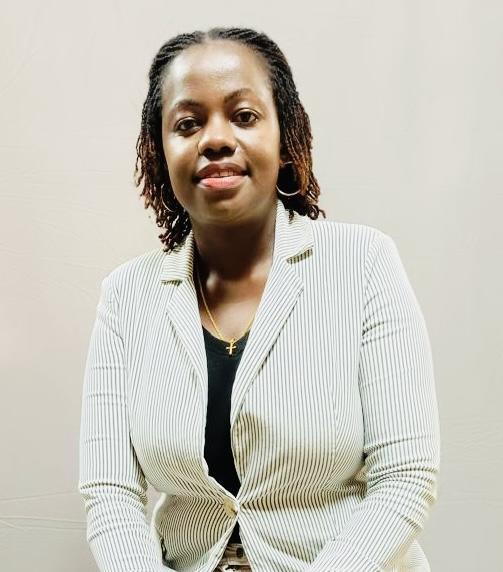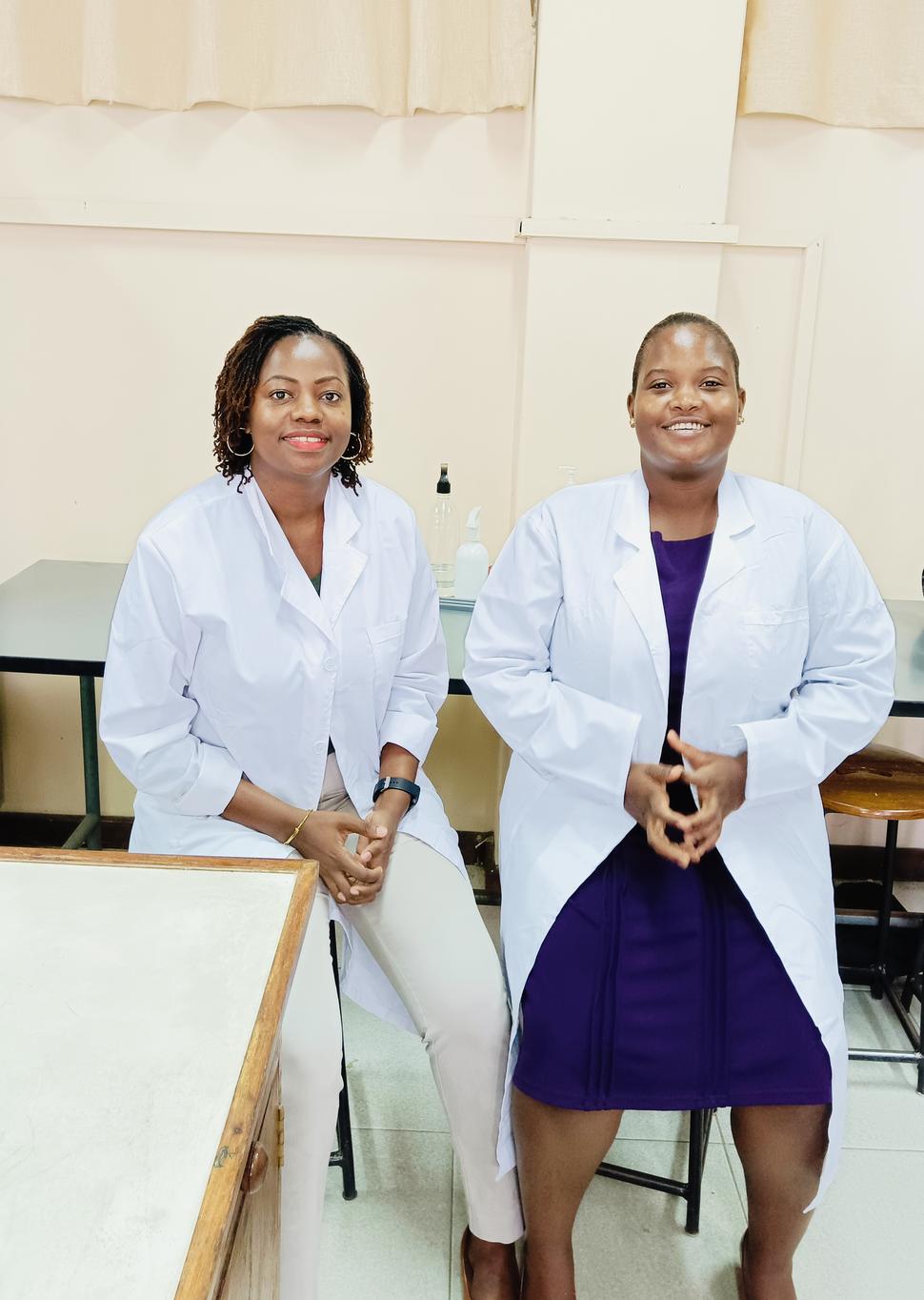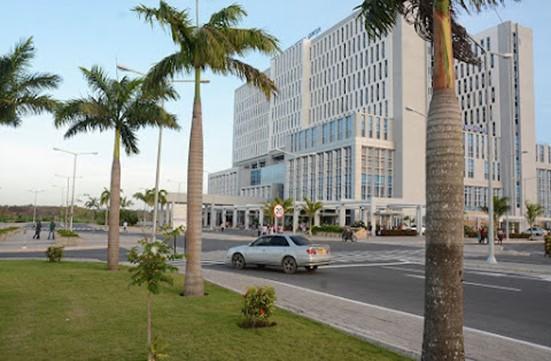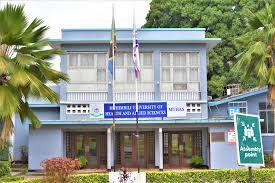Trainee Spotlight: Asteria Kimambo, M.D., M.Med.
, by CGH Staff
Note: The views expressed here are those of the grantee/trainee and do not represent any official position of the National Cancer Institute.
Investigating FNAB as a Cost-Effective Option to Improve Cancer Diagnostics in Low-Resource Settings
Please describe your research and tell us what motivated you to pursue this topic/project.
I’m a Lecturer at Muhimbili University of Health and Allied Science (MUHAS) and a Ph.D. scholar in a cancer research training program in Tanzania (D43) supported by the NIH Fogarty International Center and NCI Center for Global Health. My research is based on the hypothesis that fine-needle aspiration biopsy (FNAB) is a cost-effective option to improve cancer diagnostics in resource-constrained settings where core needle biopsies are relatively expensive and not widely available. The procedure, which involves using a thin needle and syringe to get breast cell samples, is considered safe and minimally invasive.
In resource-limited settings, mammograms are not widely available, additionally core needle biopsies and open tissue biopsies are often prohibitively expensive and require complex laboratory infrastructure. FNAB is a well-established, cost-effective, minimally invasive diagnostic procedure and often the first or only available tissue sampling method in resource-limited settings. When performed by a skilled operator and combined with data from other procedures such as ultrasound (US) and rapid on-site evaluation (ROSE) of aspirated FNAB materials offers high diagnostic accuracy. This level of accuracy is achieved when these procedures are performed by skilled operators. However non-diagnostic rates and false negative rates can be as high as one third when FNAB is performed by an operator with limited training and lack of proper infrastructure. Therefore, patients may have to undergo unnecessary repeat procedures or even a surgical open biopsy, resulting in delays in cancer care and increased cost to patients. To address this problem, I developed a project aimed to evaluate the performance and impact of ultrasound guided fine needle aspiration and ROSE on cytology materials in resource-limited settings. The combination of ROSE and US has the potential to increase diagnostic accuracy and reduce non-diagnostic samples, thereby decreasing the number of patients who must undergo surgical excision solely for diagnostic purposes. Therefore, the adoption of these techniques has the potential to reduce costs and delays in cancer care.
What inspired you to choose the setting where you are working?
I have been privileged to be exposed to both local and international institutions with high technical pathology services. However, this study is part of my Ph.D. work aimed to implement an intervention which is the standard of care in high-resource settings. The intervention strategy will adapt locally available resources to existing and functional pathology laboratories. The primary aim is to create a reproducible resource-adapted intervention strategy to improve and build capacity of pathology services and research in our local setting. I am happy as a young and emerging scientist to have this opportunity to use what we have locally and implement a research project.
What were some of the challenges that you faced and lessons you learned from your project?
Developing an implementation science project is challenging. It is important to develop the ability to conceptualize and evaluate the outcome related to the implementation process as well as patient and service outcomes. A key step in starting something new is to involve and get the support of top management. For this new intervention to be adopted, both the management and all the service providers should be engaged. This way everyone can contribute to the intervention and be aware of any changes to the workflow. Currently we are interviewing stakeholders and listening to their views and opinions on how to implement the project.
How do you hope your work will advance the field of global cancer research/support cancer control efforts?
I have a strong commitment to improving the quality of cancer diagnostic services in Tanzania and globally. My research interest is in strengthening cancer diagnosis using evidence-based and implementation science methods. I have worked extensively on point-of-care diagnostic testing for breast cancer, conducted a formative evaluation, and designed strategies for integrating a point of care diagnostic test to improve breast cancer biomarkers. The knowledge acquired during these projects inspired me to develop a career in implementing evidence-based diagnostic tests in our setting. Overall, my research experiences have shown me the importance of implementing evidence-based programs to improve delivery of cancer care.
What are some opportunities/unanswered questions in global cancer research in your setting?
Tanzania faces a growing burden of cancer with health care systems that are inadequately prepared to meet this public health challenge. There is a significant rise in cancer patients – we see approximately 45,000 new cases every year. We also see an unacceptably high mortality rate of nearly 30,000 deaths per year (World Health Organization, 2022)(1). A majority of patients are diagnosed at advanced stages. Although pathology is essential in determining a patient's treatment and prognosis, traditionally there has been little focus on improving pathology services, resulting in diagnostic delays and suboptimal treatment for patients. In addition, pathology services, especially cancer screening and diagnoses are largely limited due to technical, infrastructural and economic barriers. These barriers include the lack of pathologists, trained laboratory personnel, and resources. These challenges have great impact on our ability to provide quality cancer care. I strongly believe that most of these cancer related screening and diagnostic challenges in scarce resource settings like Tanzania can be effectively addressed through implementation research designed to answer locally relevant questions.
What are some highlights and reflections on your career path?
My career would not be possible without the structure, supportive environment, and strong mentorship from local and international mentors who have tremendously contributed to my past, present, and future career. The research skills I have acquired have allowed me to write grants, conduct research, and disseminate and publish research findings.
Established in 1963, MUHAS is Tanzania’s premier and flagship tertiary educational institution for training of health care workers, clinicians, and researchers in Tanzania. Currently, the university has five schools (Medicine, Nursing, Dentistry, Pharmacy, Public Health and Social Sciences), two institutes (Traditional Medicine, Allied Health Sciences) and 11 academic and supportive directorates (Undergraduate Education, Postgraduate Studies, Research and Publications, Information Communication Technology, Continuing and Professional Development, Library Services, Planning and Investment, Quality Assurance, Finance, Estates, Human Resource Management and Administration).



